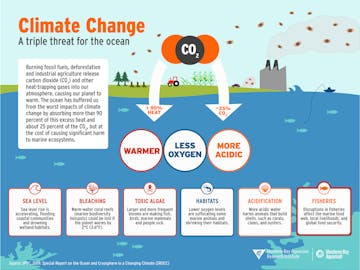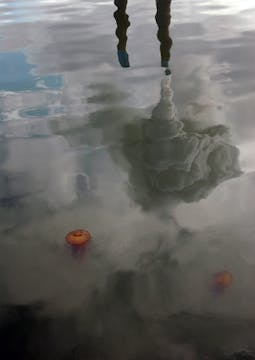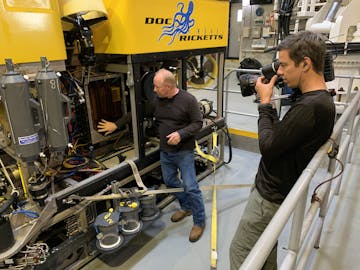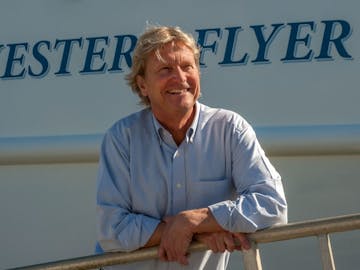“In my humble opinion, the oceans are a more important frontier for research that will bring more tangible benefits to the world than space, or high energy physics, or other areas that have received a high level of public interest and, therefore, political support. It is about time someone gave ocean science more attention.”

The Intergovernmental Panel on Climate Change Report details the triple threat of climate change to ocean ecosystems: warming, acidification, and deoxygenation. Illustration by Emily Hess.

The emerging footprint of human influence is increasingly clear—fossil fuel emissions are harming the ocean. Photo by Todd Walsh.

Presley Adamson, the producer for the Monterey Bay Aquarium film and video team, films MBARI ROV pilot Knute Brekke during a research expedition. The MBARI and Aquarium video and social media teams have been collaborating closely to amplify outreach for both organizations.



